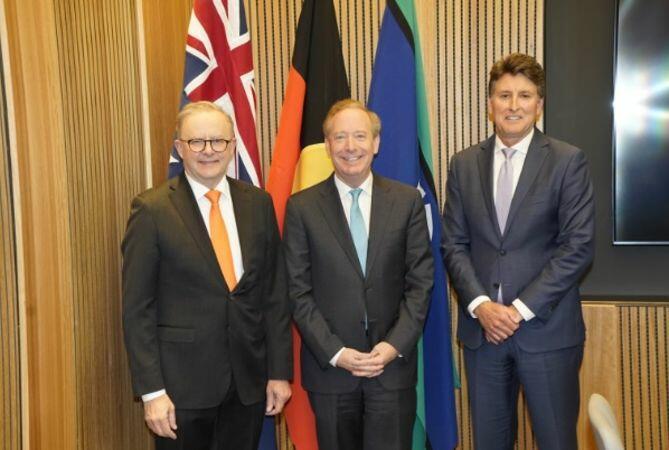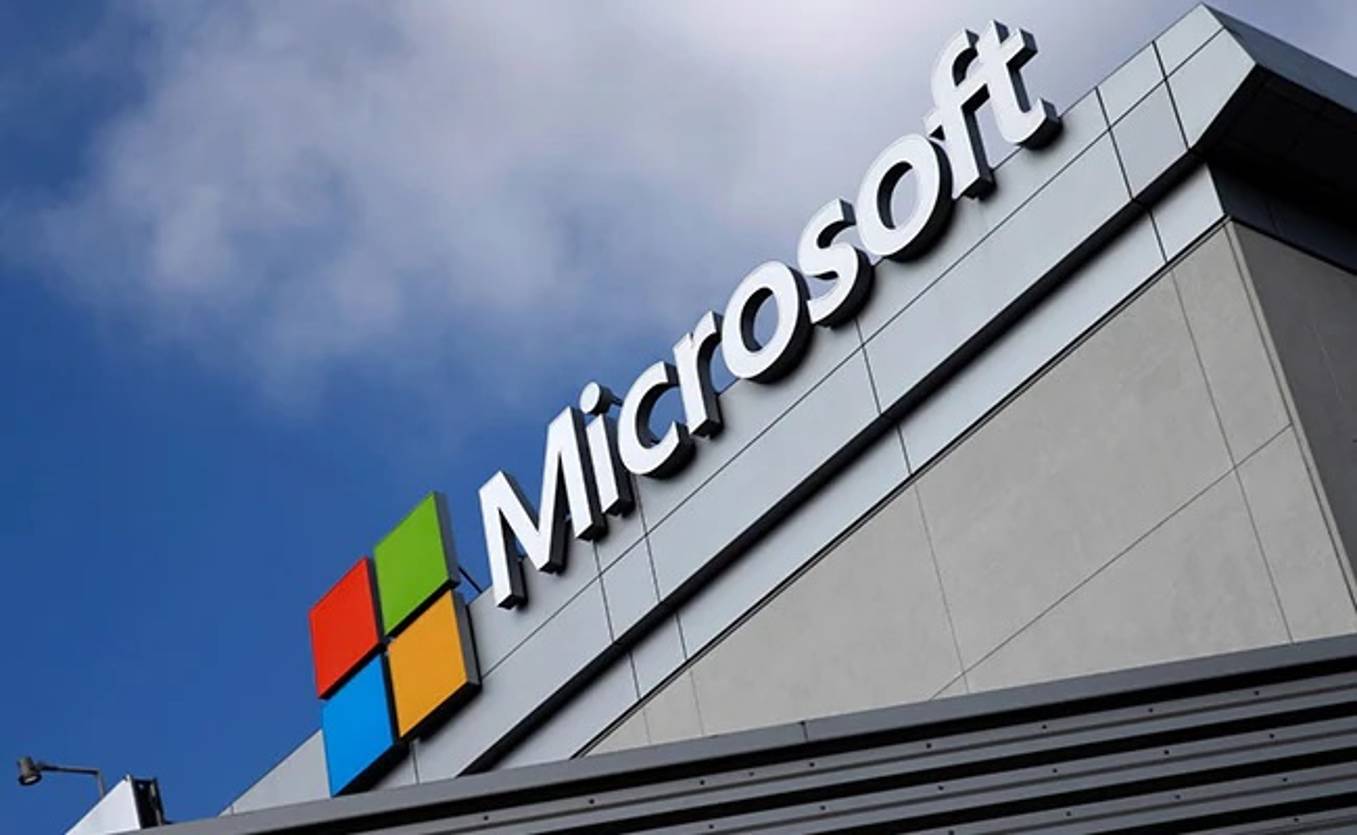Microsoft today unveiled significant investments in Australia’s digital infrastructure, education, and cybersecurity sectors. The initiatives are geared towards positioning the nation to leverage the benefits of artificial intelligence (AI), bolster its economic competitiveness, create high-value jobs, and safeguard against the growing threat of cyberattacks.
A$5 billion to expand hyperscale cloud computing and AI infrastructure in Australia
In a historic move, Microsoft is committing A$5 billion to expand its hyperscale cloud computing and AI infrastructure in Australia over the next two years, marking the company’s most substantial investment in the country over its four-decade presence.
The endeavor will also see Microsoft increase its local datacenter presence from 20 to a total of 29 sites strategically located in Canberra, Melbourne, and Sydney.
To fully harness the potential of this digital infrastructure investment, Microsoft is partnering with TAFE NSW to establish the Microsoft Datacentre Academy in Australia.
Furthermore, the tech giant plans to extend its global skills programs, enabling over 300,000 Australians to acquire the necessary capabilities to thrive in an economy driven by cloud and AI technologies.
In a bid to enhance cybersecurity for Australian residents, businesses, and government entities, Microsoft will collaborate with the Australian Signals Directorate (ASD) in an initiative known as the Microsoft-Australian Signals Directorate Cyber Shield (MACS).
The cooperative effort will focus on creating tailor-made, state-of-the-art cybersecurity solutions to fortify defense against cyber threats.
This momentous announcement coincided with Australian Prime Minister Anthony Albanese’s state visit to the United States. During his visit, he was joined by Microsoft Vice Chair and President Brad Smith, as well as Microsoft Australia and New Zealand Managing Director Steven Worrall.
Prime Minister, Anthony Albanese, said, “This is a major investment in the skills and workers of the future, which will help Australia to strengthen our position as a world-leading economy.”
“A priority for my Government is to ensure all Australians benefit from economic growth. This means that we need to provide the skills to enable Australians to succeed in the jobs of the future.”
“A strong economy requires protection from cyber threats. I welcome Microsoft’s collaboration with the Australian Signals Directorate to enhance cybersecurity for households and business.”
According to Steven Worrall, Managing Director, Microsoft Australia and New Zealand the infrastructure, skilling and cybersecurity investments and initiatives we announced to build on Australia’s long-term commitment to Australia but are squarely focused on the future.
“They will not only enable a safer and more secure digital economy, but also provide a platform to foster growth and innovation in the era of AI.” Worrall said.
Australia’s digital capacity to seize the AI opportunity
Microsoft’s incredible A$5 billion investment in digital infrastructure is a game-changer! Get ready to witness a whopping 250% boost in their computing capacity within just two years. This is not just a technological leap; it’s a testament to their commitment to meet and exceed the surging demand for cloud computing services.
Hold onto your seats, because the numbers are staggering. Cloud computing services, which clocked in at A$12.2 billion in 2022, are predicted to explode to A$22.4 billion by 2026. Yes, you heard it right, almost double in just four years!
This isn’t just about business; it’s about pushing the boundaries of innovation and unleashing unprecedented possibilities. Microsoft is boldly stepping into the future, and they’re inviting us all along for the ride. With this kind of investment and growth, the sky’s not even the limit – it’s just the beginning
The investment isn’t just great news for Microsoft, it’s a massive win for Australia too! We’re talking about a golden opportunity to supercharge our economy and productivity, and it’s all thanks to the latest AI technology.
Hold onto your hats, because the Tech Council of Australia and Microsoft just released a groundbreaking report. It’s not just any report; it’s a roadmap to our future success.

This game-changer revealed that generative AI, if we embrace it full throttle, could bring a whopping A$115 billion per year to our economy by 2030.
Imagine what that kind of financial infusion can do for our nation – it’s not just economic growth; it’s a chance to skyrocket into a tech-savvy, innovative future.
Kate Pounder, CEO, Tech Council of Australia said, “The Tech Council of Australia (TCA) welcomes this substantial investment in Australia’s digital infrastructure, this investment is critical to creating jobs and opportunity in Australia.
“The TCA has a shared goal with the Australian Government of having 1.2 million people in tech jobs in Australia by 2030.”
“Hyperscale cloud providers like Microsoft are integral to Australia’s tech industry – they lower the barrier to entry for startups, act as incubators for developing talent, allow scale-ups to compete on the global stage and provide the same innovation and security available to the largest companies,” said Pounder.
Microsoft is also committed to aligning its new data centers in Australia with the company’s sustainability objectives, aiming to achieve carbon negativity, water positivity, and zero waste by 2030.
The commitment involves the utilisation of low-carbon materials in the construction process, the adoption of renewable energy sources, implementation of advanced water-cooling technology, and initiatives to reduce diesel fuel consumption during operation.
Building new capabilities for the era of AI
In today’s announcement, Microsoft has pledged to extend its backing to an extra 300,000 Australians through its worldwide skills programs.
These programs are specifically crafted to empower individuals with the essential skills and competencies required for thriving in the digital economy, granting them access to educational materials, certifications, and job search tools.
In addition, Microsoft is working towards launching its first Datacentre Academy in Australia in early 2024, in partnership with TAFE NSW.
The academy’s curriculum will align with core operational roles, including those of data centre technicians, critical environment specialists, inventory and asset management professionals, and IT operations personnel.
Microsoft’s skilling investments are part of the tech industry’s shared commitment with the Australian Government to fill 1.2 million tech-related jobs across the country by 2030.
Brad Smith, Microsoft Vice Chair and President said, “This is our largest investment in Microsoft’s 40-year history in Australia and a testament to our commitment to the country’s growth and prosperity in the AI era.
“We’re coupling this A$5 billion in computing capacity and capabilities with AI and engineering that will strengthen the nation’s cyber defence, including a deeper collaboration with the Australian Signals Directorate.” he said.
Strengthening Australia’s cyber defences
The Microsoft-ASD Cyber Shield (MACS) initiative represents the evolution of a longstanding partnership between Microsoft and the Australian Government.
The enduring collaboration, marked by the exchange of critical cyber threat intelligence, has played a pivotal role in bolstering the protection of Australian citizens, businesses, and governmental institutions.
Through this synergy, the government and Microsoft are poised to significantly enhance their collective capabilities in the realm of identifying, preventing, and responding to the ever-escalating cyber threats. These threats have been steadily increasing in both their frequency and severity, necessitating a robust response.
To underscore the gravity of the situation, the Australian Signals Directorate’s (ASD) national Cyber Watch Office fielded an alarming influx of cybercrime reports during the 2021–22 financial year, surpassing 76,000 reports. This represented a notable uptick of nearly 13 percent from the previous year.
The sheer volume of these reports amounted to one report every seven minutes, painting a vivid picture of the urgent need for such collaborative efforts like MACS to fortify the nation’s cybersecurity landscape.







